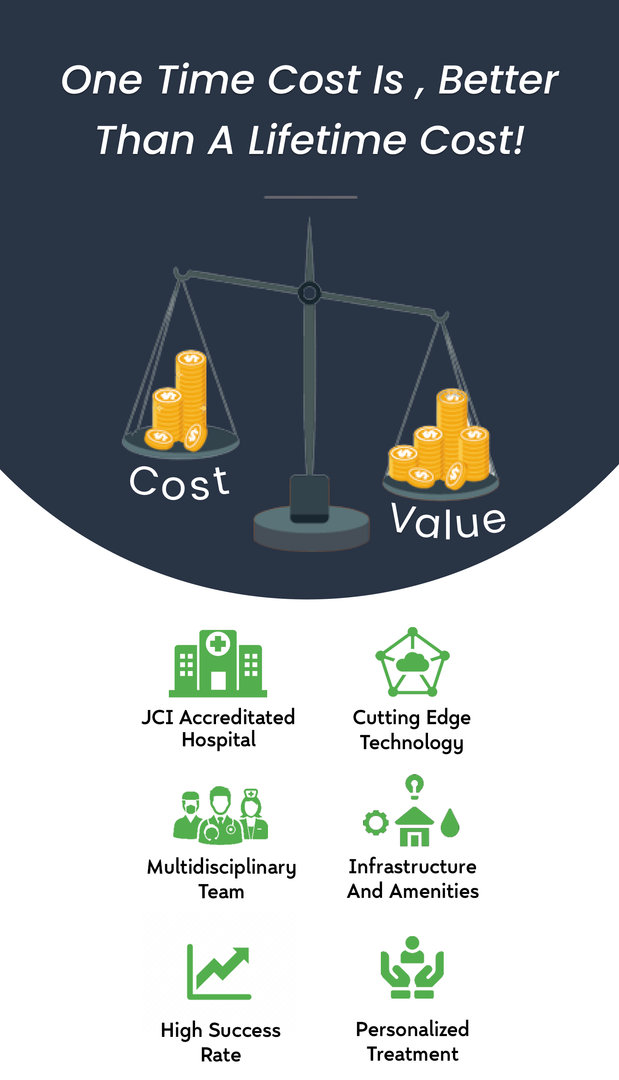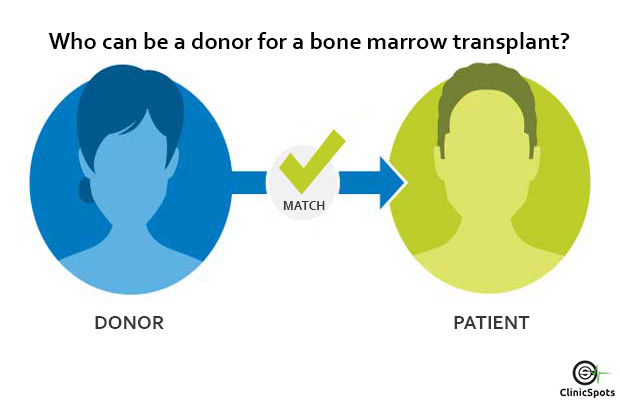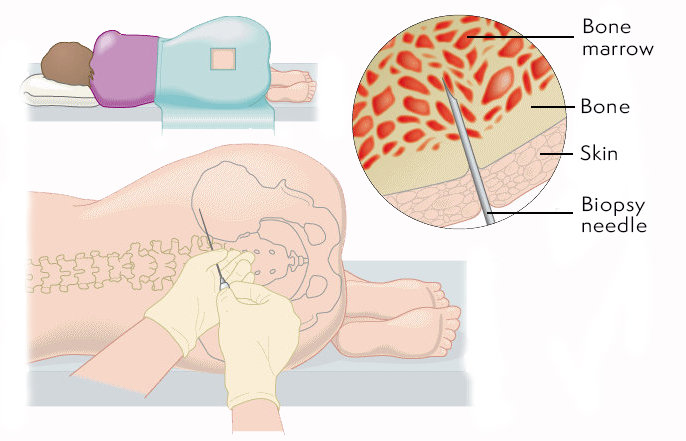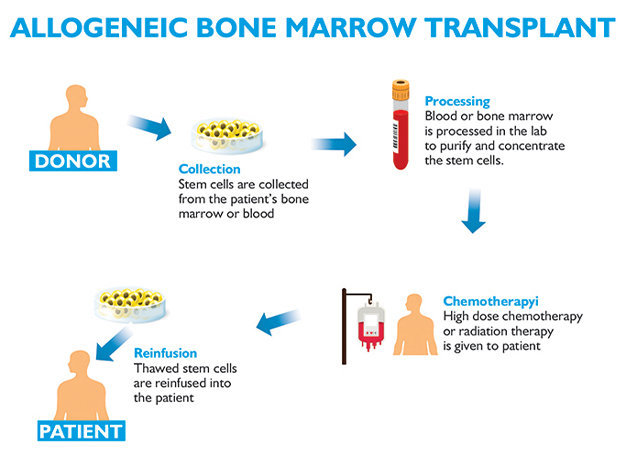Introduction
Mouth cancer, also known as oral cancer, is the sixth most common type globally. In India, treatment costs range from INR 60,574 (USD 758) to INR 5,04,893 (USD 6,318), with an average of INR 2,80,096 (USD 3,505). India offers advanced, affordable treatment with world-class facilities and qualified specialists.
Cost in Top Cities
| Cities | Min | Avg | Max |
|---|---|---|---|
| Delhi | $826 | $3820 | $6887 |
| Ahmedabad | $690 | $3190 | $5749 |
| Bengaluru | $811 | $3750 | $6760 |
| Mumbai | $857 | $3961 | $7139 |
| Pune | $781 | $3610 | $6508 |
| Chennai | $743 | $3435 | $6192 |
| Hyderabad | $720 | $3330 | $6002 |
| Kolkata | $659 | $3049 | $5497 |
Top Doctors
Top Hospitals

More Information
What is the oral cancer treatment cost in India?
Mouth cancer treatment cost in India depends entirely on the stage and grade of the cancer cells as well as your overall general health. Given below is a detailed cost structure of treating mouth cancer in India.
Surgery | Oral cancer surgery cost in India: INR 1,50,000 - 3,00,000 (USD 1,933 - 3,867) |
Radiation Therapy | 1. External beam radiation therapy: Here, a machine delivers the radiation beams targeting the tumour from different directions. Cost in India: INR 70,000-10,00,00 (USD 9,000 - 12,890). 2. Internal radiation therapy (IRT): Also known as brachytherapy, here radioactive materials are placed directly into the oral cavity so that the radiation dose is highly concentrated in the tumour. Cost in India: INR ₹ 61,960 to ₹ 5,16,337 (USD 800 - 6,655) 3. Image-guided radiation therapy (IGRT): In this method, imaging tests like CT, MRI and PET along with special computer software to optimise the delivery of radiation. The approach involves imaging scans daily to determine an accurate position to deliver the radiation. Cost in India: INR 3,00,000-4,00,000 (USD 3,867 - 5,156). 4. Intensity-Modulated Radiation Therapy (IMRT): This method uses a highly advanced computer with a metal device called a collimator that allows the radiation beams to take shape of the exact dimensions of the treatment area. Cost in India: INR 2,00,000-3,00,000 (USD 2,578 - 3,867) |
Proton Therapy | Cost in India: INR 15,00,000-20,00,000 (USD 19,335 - 25,780). |
Chemotherapy | Oral chemotherapy cost in India: Starts from INR 56,000 (USD 722) Intravenous chemotherapy cost in India: INR 18000/session (USD 232) |
1. Surgery
Surgical oncologists in India perform surgery to remove the tumor and cut away a margin of healthy tissues so that all cancer cells are removed entirely. If the cancer cells have spread to the lymph nodes in the neck, then doctors perform a neck dissection surgery to remove the cancer cells. Further, doctors also recommend reconstructive surgery to build the mouth so patients can regain their full ability to eat and talk.
2. Radiation Therapy
In this method, radiation oncologists use high-energy beams such as X-rays and protons to kill the cancer cells. There are four types of radiation therapies:
(a) External beam radiation therapy: Here, a machine delivers the radiation beams targeting the tumor from different directions.
(b). Internal radiation therapy (IRT): Also known as brachytherapy, where radioactive materials are placed directly into the oral cavity so that the radiation dose is highly concentrated in the tumor.
(c). Image-guided radiation therapy (IGRT): In this method, imaging tests like CT, MRI, and PET along with special computer software to optimize the delivery of radiation. The approach involves imaging scans daily to determine an accurate position to deliver the radiation.
(d). Intensity-Modulated Radiation Therapy (IMRT): This method uses a highly advanced computer with a metal device called a collimator that allows the radiation beams to take shape of the exact dimensions of the treatment area.
3. Proton Therapy: This method, delivered through a device named cyclotron reduces the likelihood of side effects of radiation as the beams do not penetrate beyond the tumor. It is a recent advancement in the field of oncology and only Apollo Proton Cancer Centre in Chennai is equipped with this facility.
4. Chemotherapy: This therapy uses chemicals to kill cancer cells. The medicines are either given alone or with a combination of other cancer treatments.
As you can see, tongue cancer treatment costs in India, throat cancer treatment costs in India, and all other types of mouth cancer treatments in India are very affordable and quite advanced. India is a leading nation in terms of medical science and also has exceptionally skilled oral cancer oncologists to deal with the most complicated cases. Moreover, all the best mouth cancer hospitals in India are equipped with modern equipment and state-of-the-art technology. If you compare India’s oral cancer treatment cost to the most developed nations of the world, you will find that India’s medical proficiency in dealing with the Big C is world-class and affordable at the same time.
Let's look at the expense of treating oral cancer in India and other nations:
| Country | Average Cost |
| India | USD 3,505 |
| United States | USD 32, 500 |
| United Kingdom | USD 8,250 |
| France | USD 7,450 |
| Singapore | USD 11,000 |
Mouth cancer test cost in India
| Treatment | Definition | Cost |
| Biopsy | A small sample of the affected tissue is extracted to check for the presence of cancerous cells. | Mouth cancer biopsy test cost in India: INR 5000-25000 (USD 64 - 322) |
| Ultrasound scan of the neck | Sound waves produce a picture of neck and lymph nodes so doctors can detect any change in size or appearance of lymph nodes.
| Cost in India: INR 700-1300 (USD 9 - 17)
|
X-Ray | An imaging test for doctors to determine if the cancer has spread to the bone. | Cost in India: INR 200-500 (USD 2.58 - 6.45) |
| Fine Needle Aspiration (FNA) of the lymph nodes | A fine needle is passed into the lymph node to withdraw some cells into a syringe so doctors can determine if there are cancer cells in the lymph nodes
| Cost in India: INR 2000-3000 (USD 25 - 38)
|
| Magnetic Resonance Imaging (MRI) scan | MRI is done to determine if the cancer has spread from the mouth to the neck.
| Cost in India: INR 2400 - 6500 (USD 30 - 83.79)
|
| Computerized Tomography (CT) Scan | A series of X-rays to determine if the tumor exists in the oral cavity, lymph nodes, or elsewhere.
| Cost in India: INR 1000-4500 (USD 12.89 - 58)
|
What is the post-treatment cost of mouth cancer in India?
After your treatment is done successfully, there is a series of regular check-ups and possible X-rays or scans. While post-treatment costs for mouth cancer treatment in India will vary from person to person, here is an average breakdown to help plan your medical expenses better.
| Post-treatment medicines | INR 10,000 - 50,000 (USD 193 - 644) |
| Daycare and accommodation (2-6 days) | INR 10,000 - 25,000 (USD 193 - 322) [Based on preferences and choices] |
What are the factors determining the cost of mouth cancer treatment in India?
Several factors determine the cost of oral cancer treatment in India. They are:
| Hospital Factors | Medical Team Factors | Patient Factors |
| Type of hospital (Government, Trust or Private) | Technology and treatment approaches used | Stage and grade of the cancer |
| Accreditation of the facility | Type of surgery required | General health of the patient |
| Brand value of the hospital | Extent of the surgery | Accommodation services availed by the patient |
| Use of insurance or self-paid | Personal brand value of the doctor | Post-treatment care of the patient |

Other Details
What are the best hospitals for oral cancer treatment in India?
India has a stellar reputation in the healthcare sector; patients from around the world travel to the country to avail the best quality cancer treatment. Oral cancer treatment is available at several hospitals across India. The hospitals have world-class infrastructure, a dedicated oncology department, and the best mouth cancer doctor in India to provide comprehensive cancer care to patients. Here is a list of the five best hospitals for treating oral cancer in India; these hospitals are renowned for catering to many international patients as well as recognizing the special needs of patients and their families from foreign lands.
- Nanavati Max Super Speciality Hospital in Mumbai offers world-class oral cancer treatment facilities including chemotherapy, surgeries, hormone therapy, and radiotherapy. The hospital focuses on a multidisciplinary team approach (surgery, chemotherapy & radiation therapy) to manage cancers and is backed by cutting-, edge sophisticated modern infrastructure.
- TATA Medical Center in Kolkata offers comprehensive oral cancer care from diagnostics, treatment, rehabilitation, and preventive oncology to telemedicine. To facilitate oral cancer treatment, the hospital is equipped with state-of-the-art technologies such as Metabolic imaging, Molecular diagnostics, and Robotic surgery.
- Adyar Cancer Institute in Chennai has both extraordinary national and international stature. The hospital provides treatment for different types of cancers like squamous cell carcinoma, Lung cancer, Leukemia, Colorectal cancer, Melanoma, etc.
- Apollo Hospital in Bangalore is a healthcare powerhouse with the latest cutting-edge technology in medical science. Patients from over 120 countries visit this hospital annually due to their success rate in treating cancer.
- Sir Ganga Ram Hospital is often called the best mouth cancer hospital in Delhi NCR providing holistic cancer care with the latest medical procedures and technology. This mouth cancer hospital in Delhi houses India’s best oncologists who provide quality care to both Indian and international patients.
Disclaimer : The above rates are for reference purpose only and may vary based on different requirements. To know actual rates, please contact us.
Related Blogs

Who can be a donor for a bone marrow transplant in India?
Are you wondering who can be a donor for Bone Marrow Transplant in India? Then you are in the right place, below is the in-depth information about it.

Bone Marrow Transplant in India: Advanced Treatment Solutions
Discover advanced bone marrow transplant options in India. Trusted specialists, state-of-the-art facilities. Find hope and healing with personalized care.

Risks and Complications of Bone Marrow Transplant in India
Here is the in-depth list of all the risks and complications involved in the bone marrow transplant.

What is the Allogeneic Bone Marrow Transplant Cost in India?
Below is in-depth information and cost on Allogeneic Bone Marrow Transplant in India along with some of the best doctors to treat it.

Dr. Sandeep Nayak - Best Oncologist in Bangalore
Dr. Sandeep Nayak - Best oncologist in Bangalore. Experience of 19 years. Consults at Fortis, MACS & Ramakrishna. To book an appointment, call @ +91-98678 76979
What are the symptoms of oral cancer?
How is oral cancer diagnosed?
What is the recovery time for oral cancer surgery?
Are there any alternative treatments available for mouth cancer in India that are less expensive?
What factors affect the cost of mouth cancer treatment in India?
How We Help
Medical Counselling
Connect on WhatsApp and Video Consultation
Help With Medical Visa
Travel Guidelines & Stay
Payment








